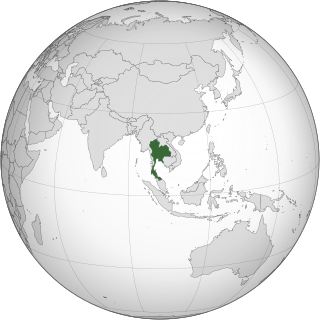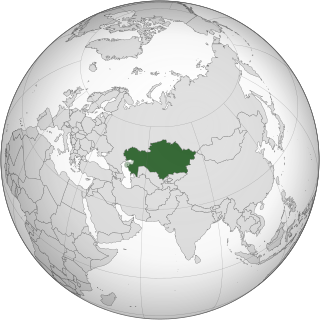A country code is a short alphanumeric identification code for countries and dependent areas. Its primary use is in data processing and communications. Several identification systems have been developed.

The International Telecommunication Union Telecommunication Standardization Sector (ITU-T) is one of the three Sectors (branches) of the International Telecommunication Union (ITU). It is responsible for coordinating standards for telecommunications and Information Communication Technology, such as X.509 for cybersecurity, Y.3172 and Y.3173 for machine learning, and H.264/MPEG-4 AVC for video compression, between its Member States, Private Sector Members, and Academia Members.
Telecommunications in Mozambique include radio, television, fixed and mobile telephones, and the Internet.
E.164 is an international standard, titled The international public telecommunication numbering plan, that defines a numbering plan for the worldwide public switched telephone network (PSTN) and some other data networks.
A toll-free telephone number or freephone number is a telephone number that is billed for all arriving calls. For the calling party, a call to a toll-free number from a landline is free of charge. A toll-free number is identified by a dialing prefix similar to an area code. The specific service access varies by country.
A telephone numbering plan is a type of numbering scheme used in telecommunication to assign telephone numbers to subscriber telephones or other telephony endpoints. Telephone numbers are the addresses of participants in a telephone network, reachable by a system of destination code routing. Telephone numbering plans are defined in each of the administrative regions of the public switched telephone network (PSTN) and in private telephone networks.
E.123 is an international standard by the standardization union (ITU-T), entitled Notation for national and international telephone numbers, e-mail addresses and web addresses. It provides guidelines for the presentation of telephone numbers, email addresses, and web addresses in print, on letterheads, and similar purposes.
International direct dialing (IDD) or international subscriber dialling (ISD) is placing an international telephone call, dialed directly by a telephone subscriber, rather than by a telephone operator. Subscriber dialing of international calls typically requires an international call prefix to be dialed before the country code.
Universal personal telecommunications (UPT) was a special segment of the international telephone number space which had been set aside for universal personal telephone numbers. This service had been allocated country code +87810 and was completed by a 10-digit subscriber number which provided 10 billion unique numbers. The International Telecommunication Union (ITU) introduced this concept in 2001, referring to it as "global number portability".
International Telecommunications Public Correspondence Service (ITPCS) was an International Telecommunication Union (ITU) proposal for some form of individual-based international numbering plan that would be accessed using telephone numbers from the 991 range.
International Networks is the name given by the International Telecommunication Union (ITU) to country calling codes +882 and +883, and serves as a catch-all for telephone services not dedicated to a single country. Satellite telephone carriers, especially those with worldwide service, are allocated within the Global Mobile Satellite System (GMSS), country code +881, with the exception of non-terrestrial Inmarsat, country code 870.

Telephone numbers in Europe are managed by the national telecommunications authorities of each country. Most country codes start with 3 and 4, but some countries that by the Copenhagen criteria are considered part of Europe have country codes starting on numbers most common outside of Europe.

Telephone numbers in the Republic of China (Taiwan) use a system of area codes, beginning 02 to 08. The leading digit(s) following the area code denote the network operator (Chunghwa Telecom and its competitors). Mobile numbers begin 09. The international code for calls into Taiwan is 886.

Thailand's telephone numbering plan in Thailand is managed by the National Broadcasting and Telecommunications Commission (NBTC) in accordance with International Telecommunication Union's (ITU) recommendation E.164.

Telephone numbers in Russia are administered by Roskomnadzor, and Ministry of Digital Development, Communications and Mass Communications of the Russian Federation. Russia's National Numbering Plan (NNP) is a four-level telephone numbering plan with local, zone, country, and international scopes, implementing a closed numbering plan, in which the number of digits of all national significant numbers (NSN) assigned to subscriber telephones is fixed at ten, with three digits for the area code, and a seven-digit subscriber number which includes a zone code of up to two digits. Internationally, Russia participates in the numbering plans of the International Telecommunication Union (ITU) provided by recommendations E.164 and E.123, using the telephone country code 7.

Telephone numbers in Kazakhstan are regulated under the auspices of the Telecommunications Committee of the Ministry of Digital Development, Innovations, and Aerospace Industry in the Republic of Kazakhstan. They are administered by telecommunication providers, notably Kazakhtelecom, a state-backed and the largest national operator.
South Sudan uses a two digit mobile code along with a seven digit phone number. For international calls, South Sudan has been assigned the +211 code by the International Telecommunication Union (ITU). Before its secession, the area later to be known as South Sudan used Sudan's ITU. However, even after its secession, South Sudan used the Sudan country code +249 until 1 October. The government of the nation said the code number +211 would become active within 48 hours of recognition of the country by the United Nations (UN). The UN recognized South Sudan on 14 July 2011, and in so the United Nations suggested the code to become active by 16 July. The code went "live" on 1 October 2011, over two months behind schedule.

The dialing code for Kosovo is +383. It was assigned by the ITU following an agreement between the authorities of Kosovo and Serbia in an EU-led dialogue. Its dialing code was initially expected to become effective on 1 January 2015, but it was postponed to the finalization of the agreement in late August 2015. With the agreement of the Administration of the Republic of Serbia, the Director of TSB has assigned the international codes to Kosovo. Kosovo is represented in ITU as Kosovo* which the designation is without prejudice to positions on status, and is in line with UNSCR 1244 and the ICJ Opinion on the Kosovo declaration of independence. The EU has handed over the temporary authorisation for mobile and the licence for fixed telephony services to be undertaken in Kosovo issued by the Kosovo Telecommunication Regulatory Authority to mts d.o.o.






